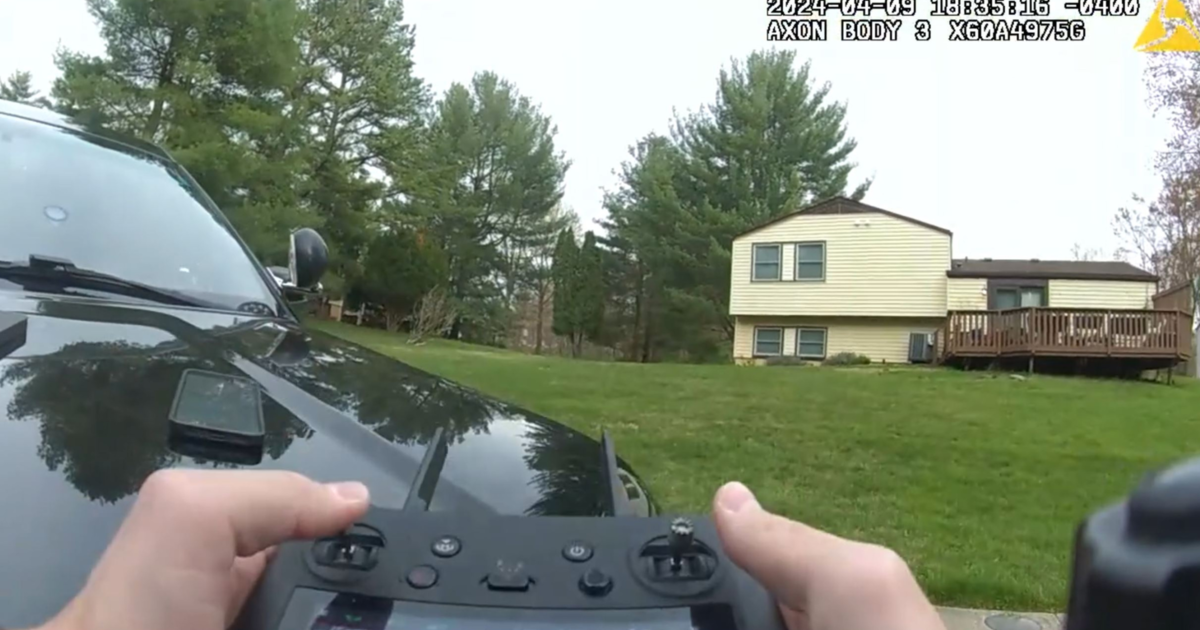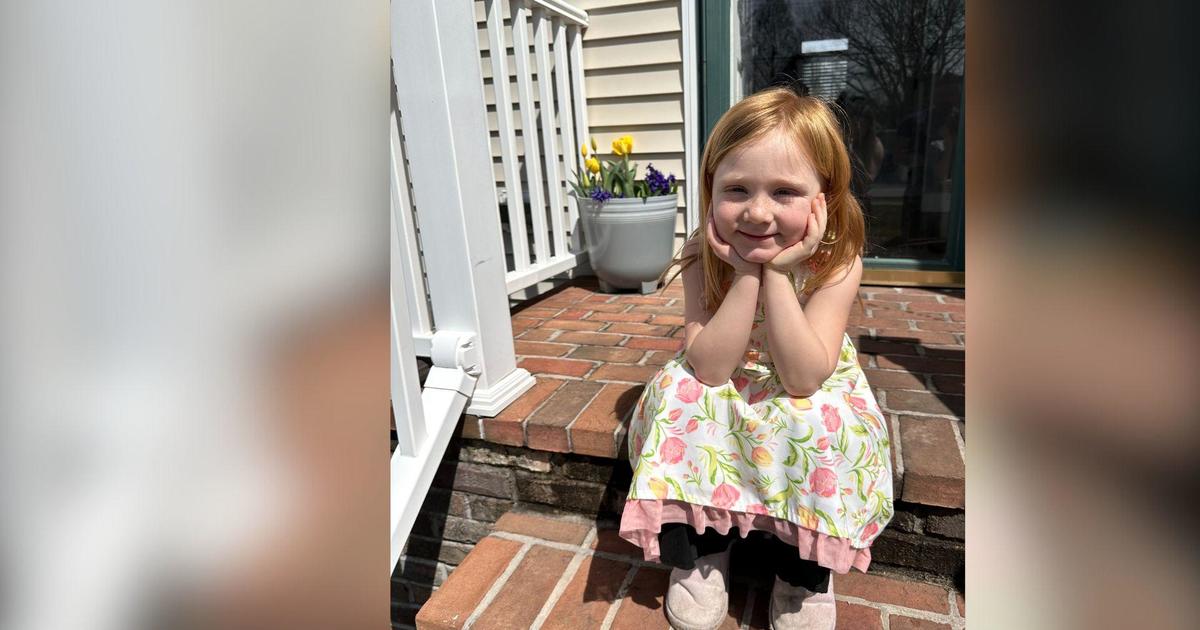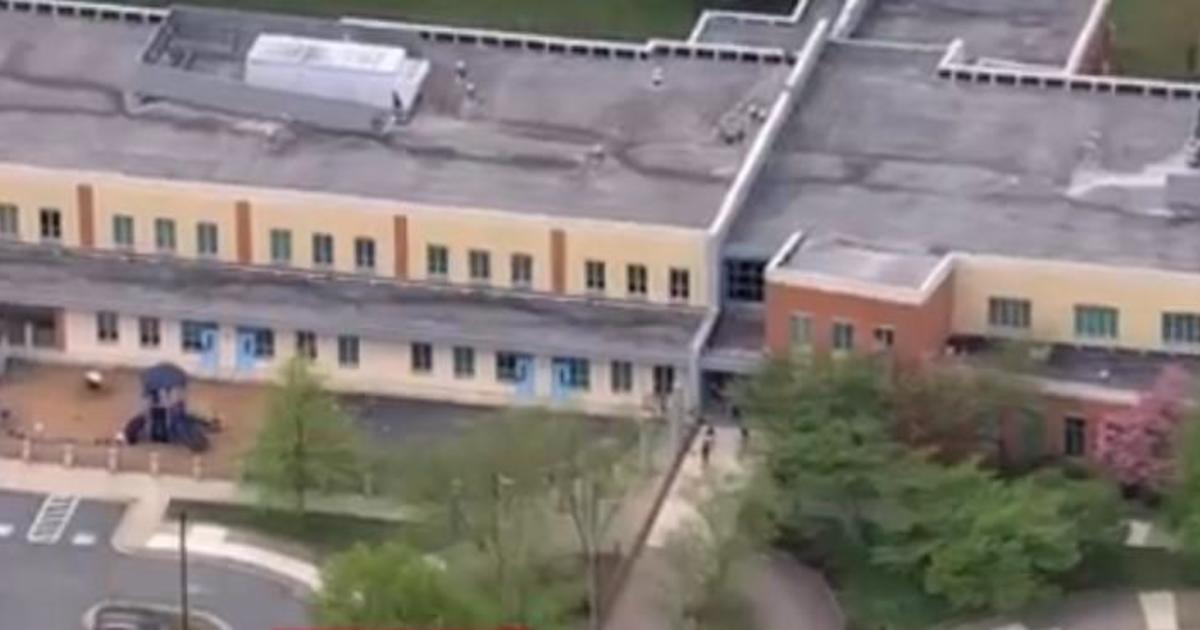County Executive's Security Detail Testifies About Campaign Work
ANNAPOLIS, Md. (WJZ) -- The misconduct trial for Anne Arundel County Executive John Leopold is underway Wednesday with more prosecution witnesses.
Mike Hellgren has more.
The last witness for Tuesday and the first witness for Wednesday is Erik Robey, Leopold's chief of staff. He also worked on Leopold's campaign. The defense is frequently objecting to prosecution questions regarding big money donations to Leopold's 2010 re-election campaign.
Robey testified that Leopold asked a member of his executive protection detail to make sure one of his campaign signs was not destroyed.
He also testified the campaign produced a robocall in the county executive's office, and that Cpl. Howard Brown--a member of the detail who testified extensively Tuesday-- delivered a dossier on Leopold's opponent, Joanna Conti, to his desk. He said he didn't remember if Leopold discussed it with him beforehand. But says he informed Leopold that most of what was in the file "was information I'd found earlier."
Robey testified he "believed in what we were doing and believed in the administration" but none of Leopold's county-paid staff members was forced to participate in the campaign. Many volunteered, he said.
That differs from what some members of Leopold's security detail have testified: they did campaign work because Leopold ordered them to do so or because they feared losing their jobs or being transferred if they didn't. Some said they were concerned Leopold would see them as disloyal.
"People just don't really understand the influence that he can have on your life," said whistleblower Karla Hamner.
Robey said he didn't remember a cash box during fundraising events, saying donations were checks. Cpl. Brown testified Tuesday that as part of his duties as a county employee, Leopold ordered him to watch a cash box at a campaign event. The prosecutor argues that is misconduct because county employees should not be working on campaign events while on the job.
The testimony was halting, not only because of numerous defense objections, but also because Robey frequently said he didn't remember particular time frames or conversations.
Cpl. Mark Walker, another member of Leopold's detail, also testified.
Walker testified that every day he worked for Leopold while the campaign was underway, the county executive ordered him to have campaign signs in his county vehicle. He says he would spend roughly from 7:30 to 10:30 a.m. either putting up signs or checking on them. He also says Leopold ordered him to pick up the signs after the election and put them in the county executive's basement.
Cpl. Walker testified that Leopold tore down a campaign sign for competitor Joanna Conti. When Walker noted later that security cameras may have captured the act, Leopold "became highly upset" and made him drive back to the area, where Leopold replaced the sign.
Walker says he was concerned and reported it to his superiors but said he did not want to upset Leopold, so he did not complain to him directly.
Under defense cross-examination, Cpl. Walker said he did not believe what he was doing was a crime. He said his superiors told him to keep doing what he was doing.
Walker told the judge he picked up campaign donation checks while on the clock, usually in sealed envelopes. He said sometimes he would travel outside of Anne Arundel County to gather donations--all while on duty.
He also testified about orders Leopold gave him to keep watch on the county executive around the clock at Arundel Medical Center after back surgery.
He testified Leopold was upset that his (Leopold's) girlfriend, Connie Casalena, came to visit him and Leopold did not want her running into his other, live-in girlfriend, Jane Miller. Walker said that while he did not consider Casalena a security threat, both he and Cpl. Howard Brown earned taxpayer-funded overtime to stand guard at the hospital for several days on Leopold's orders. He worked 16-hour days, earning pure overtime on his weekend days off.
Cpl. Walker said he and other members of the detail couldn't leave the hospital immediately after Leopold was sent home after surgery because, he testified, "Mr. Leopold told us we had to stay and listen to what the nurse had to say because we had to learn how to drain his catheter bag." He said it became routine to get the empty coffee jug from the center console of the executive's county car and use it to drain Leopold's urine, "a lot...more than 40 times." He said he did not consider it part of his duties but he did it because "Mr. Leopold told me to."
He also spoke of driving Leopold to a bowling alley for sex with Casalena. He said there was a routine: "We would circle the parking lot and see if cars were occupied. Then, we'd wait for Connie. When she got there, he would go to her car. I'd wait in the far corner of the lot typically 45 minutes to an hour." He did this while being paid with county funds. Walker said Leopold would discuss what happened after the encounters. He said Leopold told him it was great sex.
He claims he was also required to pick up newspapers and have them at Leopold's front door by 7:30 a.m. with all advertising flyers removed. He earned overtime for this.
On Tuesday, Police Corporal Joseph Pazulski took the stand for quite a bit of time. He was a member of Leopold's security detail. He testified he helped Leopold put up campaign signs and did other personal duties.
The state prosecutor claims Leopold inappropriately used his staff, having his security detail perform campaign functions, take him to sexual trysts with another county employee and empty urine from his catheter bag after a hospital stay. Leopold denies any wrongdoing. His defense team says he may have "lacked social grace" but there's nothing illegal about what he asked employees to do. The prosecution claims it was a waste of taxpayer-funded overtime.
In depositions filed in a separate civil suit filed by former county employee Karla Hamner, Pazulski said Leopold ordered her transferred and constantly talked "about the size of her breasts." He also said Leopold transferred another member of the security detail because he "wasn't a loyal supporter."
Also testifying was Cpl. Howard Brown, who worked on Leopold's security detail. Brown said he was paid 6 and 1/2 hours overtime just to watch Leopold's cash box at a campaign event. He said he came in on his day off and was paid overtime only to unload campaign signs, that Leopold wasn't ever present. He also said he delivered campaign signs. He was told his job was to "keep the executive happy."
Michael Stavlas testified briefly. He's an Anne Arundel County businessman and donor to Leopold's campaign. The prosecutor alleges Cpl. Mark Walker picked up a check from him.
Next was Tracie Reynolds. She found Leopold signs in her yard three times. She did not place them herself. She says she once saw a member of Leopold's security detail place one of the signs in her yard with Leopold nowhere in sight.
Loretta Drew also testified someone placed a Leopold sign in her yard. She says she asked the sign be removed and it was. She did not know who placed it there.
Karen Marcus testified Leopold came to a community event at her home. Leopold attended and asked if he could place a sign in her yard. She testified she didn't recall who put it there.
Next was Sgt. Gregory Speed, Anne Arundel County Police Department. He worked as a part-time driver for Leopold's detail. Speed testified the weekend before Leopold's last election campaign, the county executive ordered him to drive around the county to specific locations. Each time, he said Leopold would get out of the car and yank down a Conti campaign sign...then get back in the car. He yanked down at least five Conti signs over the course of an hour using a county-paid driver and vehicle.
Speed says he reported it to his supervisor but did not say anything to Leopold.
"He's a slimeball, but I don't know if he's a criminal," said one man who attended the trial.
The defense pointed out the state prosecutor gave both Cpl. Brown and Cpl. Pazulski immunity for their testimony. He asked Brown whether he would have done these actions if he believed they were criminal. Brown said "no"' but reiterated having reservations about placing the campaign signs.
The defense believes conversations between the security detail and Leopold are confidential, but the judge has been allowing the testimony.
Judge Dennis Sweeney is presiding over the case and will make a determination of innocence or guilt. Leopold decided not to have a jury decide his fate. He faces up to five years in jail if found guilty.
Opening statements and testimony started last Friday. Witnesses also have included Leopold's assistant, who wept when describing how she emptied his urine and said she did so out of fear for her job.
The trial is expected to last 10 days, and WJZ will cover every development.



